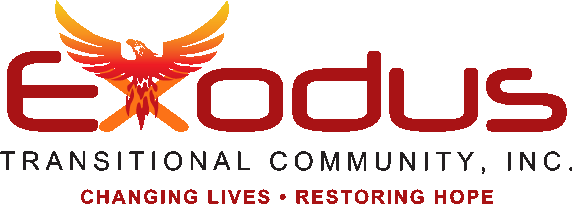Policy & Advocacy
Exodus Transitional Community is a preventative, reentry and advocacy organization that believes in human resiliency. We address both the root causes (intergenerational poverty, normalization of violence, lack of education and employment opportunities, trauma, addiction, untreated mental health) and collateral consequences (inability to secure housing, employment, education and disruption of the family reunification process) of mass incarceration. We partner with hundreds of public, private and nonprofit organizations city-wide in order to dismantle systems of oppression and reallocate funding to invest in solutions to scale.
CLEAN SLATE
The collateral consequences of a criminal record are far-reaching and never-ending. There are no current laws in New York State that seal criminal records after a person both serves their time in prison and completes their parole supervision in the community. This is where the perpetual punishment cycle kicks in and makes the transition back into larger society less than hopeful about the future. Clean Slate NY (Bill No. S1553D/A6399C) is working to change those stigmatizing consequences based on the past that sabotage the effects of rehabilitation. To accomplish this end, the Clean Slate Act will provide the automatic sealing of records of eligible individuals (three years after completion of probation or parole for those convicted of misdemeanors and seven years after completion of probation or parole for those convicted of felonies) to ensure that justice-impacted New Yorkers have fair and equitable access to housing, employment, and education. By doing so, Clean Slate NY will make communities safer by supporting basic opportunities for gainful employment, licenses to practice trades, along with safe and secure housing. (Notably, the benefits of Clean Slate will not accrue to people convicted of sex offenses.)
Fair Chance for Housing
The Fair Chance for Housing Act (Intro #632 pending in the New York City Council) aims to end housing discrimination against people with criminal records. Currently, in New York State, there are no protections for people seeking housing. Fair Chance for Housing would prohibit landlords and real estate brokers from doing background checks or inquiring about arrest or conviction record information at any stage of the application process. There are nearly 750,000 New York City residents with a conviction history – around 11% of the city’s adult population. Given that formerly incarcerated people are 10 times more likely to become homeless than the general public, this barrier to housing forces thousands of New Yorkers into the city’s shelter system or out on the street. Moreover, released formerly incarcerated individuals are significantly less likely to reoffend when they have a stable residence and a steady job. Housing is a human right. (Notably, the benefits of the Fair Chance for Housing Act will not accrue to people convicted of sex offenses.)
COMMUNITY NOT CAGES Eliminate Mandatory Minimums
Communities Not Cages is a statewide campaign building the power of people and families impacted by mass incarceration to overhaul New York’s racist and draconian sentencing laws. Exodus is fully aligned with Community Not Cages legislative agenda, a trinity of bills that seeks toradically change our use and understanding of time in the criminal legal system: The Eliminate Mandatory Minimums Act (S.7871/A.9166); The Second Look Act (S.7872/A.8894); and The Earned Time(S.7873A/A.8462B). Lawmakers, activists and former inmates have rallied to support three sentencing reform bills across New York state. Together, the bills are being called the "Communities Not Cages" package. It includes the Eliminate Mandatory Minimums Act, which would allow judges to consider individual factors when determining a sentence rather than relying on mandatory minimums; the Second Look Act, which would allow judges to revisit and reconsider long sentences. The third bill, known as the Earned Time Act, would allow inmates to receive a time allowance that would contribute to their sentence.
Treatment Not Jails
The “Treatment Not Jail Act” (S.2881B/A.8524) would lower barriers between incarcerated people and treatment for mental health, substance abuse, and other disabilities that prevent rehabilitation and reintegration into society. The number of people with a diagnosed mental illness in DOC custody has risen 27% since January 2022 (to over 1,100 at present), and the number of people with some mental health diagnosis stands at 52% of the jail population. Public health advocates, Commissioner of Corrections Molina, and correction officers themselves have acknowledged that jail is not the place to receive treatment. In fact, mental health conditions often worsen in that environment. In addition to mental health concerns, large portions of people in Rikers are dealing with substance use disorder, homelessness, and joblessness. We can’t expect to create a safe, thriving, and equitable city by sending more of our most vulnerable people to an isolated, decrepit jail complex where violence is more abundant than treatment or services.
